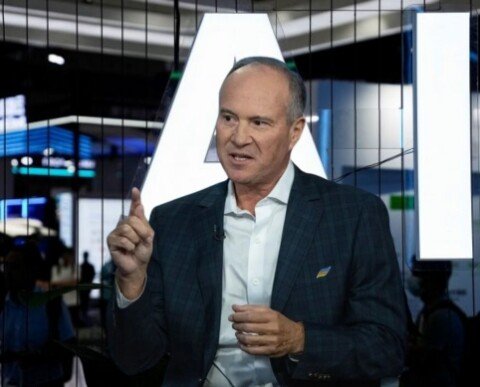Industry reports suggest that Uber might be thinking at purchasing Everest Fleet, its vendor.
With a daring plan to transform urban mobility and construct the nation’s first all-electric ride-hailing fleet, BluSmart took to the Indian road in 2019. With the promise of cleaner air and environmentally friendly transportation, the business swiftly established itself in a market that was dominated by Ola and Uber. By 2024, however, BluSmart is at a turning point in its history.
Despite its early success, the company is already actively looking for a buyer since its asset-heavy business strategy is putting a strain on its finances. According to reports, Uber, a ride-hailing company, is in the early stages of negotiations to purchase BluSmart.
This is still extremely early in the conversation. It’s possible that Uber is considering if this would work well together. Currently, nevertheless, BluSmart’s assets are too costly for anyone to purchase. This agreement will take a lot longer to move along, according to an industry source with knowledge of the situation.
In a March 16 media release, BluSmart denied any talks or negotiations about being acquired by Uber.
“The report that makes such a suggestion is completely speculative and unsupported. In response to Moneycontrol’s inquiries, BluSmart’s spokesman stated, “As India’s top EV ride-hailing and charging infrastructure platform, BluSmart remains focused on scaling its operations, expanding its footprint, and driving sustainable mobility forward.”
Uber’s eco-friendly plan
According to industry sources, Everest Fleet, Uber’s vendor, who now runs a sizable fleet of cars on the company’s platform, may also be considered for a purchase by Uber.
According to a senior industry official with knowledge of the situation, Uber has been actively considering growing its fleet of electric vehicles in India, and acquiring BluSmart through Everest Fleet might be a calculated move. Negotiations are still in their early phases, though, so it’s unclear if Uber will submit a formal bid.
Moneycontrol did not receive a response from Uber.
This coincides with Uber’s recent announcement of strategic alliances with a number of Indian EV producers and organizations. The goal of this action is to hasten its partners’ transition to sustainable mobility.
Uber aims to introduce 25,000 electric vehicles on its platform in India in the next two years by deepening partnerships with EV fleet partners like Lithium Urban Technologies, Everest Fleet, and Moove.
Uber and Zypp Electric have partnered to introduce 10,000 electric vehicles in Delhi by 2024, in addition to these fleet partnerships.
BluSmart’s acquisition negotiations mark a significant turning point for the business as well as India’s larger goals for electric mobility.
The Link Between BluSmart and Gensol
Founded in 2019, BluSmart has a close relationship with Gensol Engineering, a company that provides renewable energy solutions. Anmol Singh Jaggi, who serves as Gensol’s managing director and promoter, is a co-founder of BluSmart. This strong relationship works in BluSmart’s favor. With Gensol leasing over two-thirds of BluSmart’s 7,000 electric car fleet, Gensol is positioned as a significant supplier and stakeholder.
An important factor in BluSmart’s early development has been Gensol, which offers EPC (engineering, procurement, and construction) services for solar projects. The provision of EVs and charging infrastructure by Gensol has enabled BluSmart to establish its asset-heavy business model.
However, the strong association has also resulted in financial dependence, as Gensol has supported BluSmart by investing in infrastructure and leasing cars.
To make things even more complicated, Gensol Engineering has recently experienced serious financial difficulties. Early in 2025, the company’s stock price fell 68%, which was ascribed to a rise in share pledges to 85.5% and delays in paying debt to BluSmart bondholders.
Concerns have been raised concerning Gensol’s financial standing and capacity to sustain BluSmart’s operations in light of these developments. The liquidity issue has increased financial strain, putting Gensol’s future and, consequently, BluSmart’s stability, at risk.
The path taken by BluSmart in India
BluSmart, which started operations in Delhi-NCR with the goal of developing a sustainable urban transport system, catered to commuters who were concerned about the environment and dissatisfied with the dependability of conventional ride-hailing services.
BluSmart maintains its own fleet of electric cars and charging facilities, giving it greater control over the quality of its services than Uber and Ola, which depend on driver-owned vehicles.
Although the strategy appealed to passengers who valued consistent fares and clean cars, growing such an asset-intensive business has been difficult.
Even with its quick early development, BluSmart has had trouble growing outside of its Bengaluru and Delhi-NCR strongholds. Slow charging infrastructure development and high capital costs have hindered its capacity to compete nationally. Fleet expansion has been hampered by the company’s experience with EV delivery delays.
Punit K. Goyal and Anmol Singh Jaggi, both seasoned businesspeople with backgrounds in renewable energy, co-founded BluSmart. Jaggi, a prolific businessman, moreover
Investors like BP Ventures, Mayfield Fund, and Green Frontier Capital have contributed more than $200 million to BluSmart’s investment rounds.
To grow its fleet and charging network, it obtained a sizable loan and equity infusion in April 2023. But the company’s requirement for significant capital commitment has resulted in recurring cycles of fundraising.
The company raised over $24 million in 2024 from its current investors, including BP Ventures, in addition to donations from the founders and the leadership group.
Due to the need for infrastructure investment, BluSmart spends money far more quickly than asset-light ride-hailing companies. According to an industry insider who asked to remain anonymous, “investor appetite has waned, pushing the company to explore a potential sale or strategic investment to stay afloat, with profitability still out of reach.”
BluSmart’s operating revenue for the fiscal year that ended on March 31, 2023, was Rs 170 crore, a substantial rise from Rs 29 crore in FY22. In FY22, the company’s net loss increased to Rs 65.5 crore from Rs 39.4 crore the year before.
BluSmart grew rapidly in the electric mobility market, as evidenced by their FY24 revenue run rate of over Rs 400 crore.
The competition in the ride-hailing market
Uber and Ola, two industry titans who control the majority of the Indian ride-hailing business, are competitors of BluSmart. Although driver dissatisfaction and unpredictable fares have been issues for some businesses, their asset-light strategies enable quick expansion without requiring significant financial outlays.
Players such as Rapido and Namma Yatri are also fierce rivals of BluSmart.
Initially a bike-taxi aggregator, Rapido has made significant strides in the auto-rickshaw market and is currently investing in an electric fleet. Most recently, the largest EV auto fleet in Bengaluru was deployed. It makes sense for the business to invest in an EV fleet as well.
In the meantime, open-network ride-hailing service Namma Yatri has been popular thanks to its zero-commission business model, which gives drivers complete control over their fares. Namma Yatri offers a decentralized alternative that might threaten BluSmart’s hegemony in some markets with its intended multi-city expansion.
Newer firms like Evera and Moove are becoming competitors in the EV market, particularly in the business-to-business (B2B) sector. They concentrate on fleets that are exclusively electric and have varying ownership arrangements. Due to the entry of traditional automakers and fleet operators, BluSmart is under more pressure to stand out from the competition while controlling expenses.
The journey ahead
As the buyer search continues, BluSmart is at a turning point.
The company has the potential to become a dominant force in India’s EV ride-hailing market if it can find a strategic partner who is prepared to provide funding and foster its expansion. But if a sale doesn’t work out, BluSmart might find it difficult to continue operating, which might result in consolidation or possibly an exit, according to the source mentioned above.
In a price-sensitive market like India, the more general question is whether an asset-heavy EV ride-hailing model can endure, he continued.
The country’s future sustainable urban mobility is at stake as BluSmart navigates its course.






